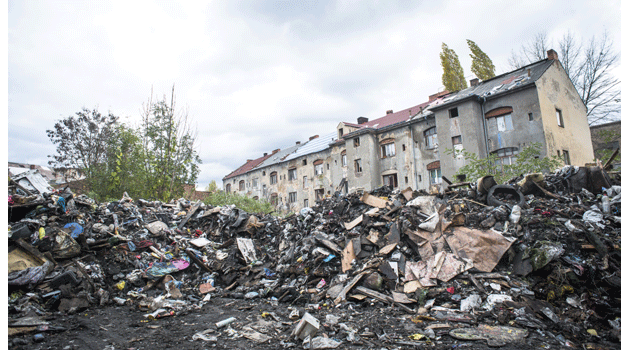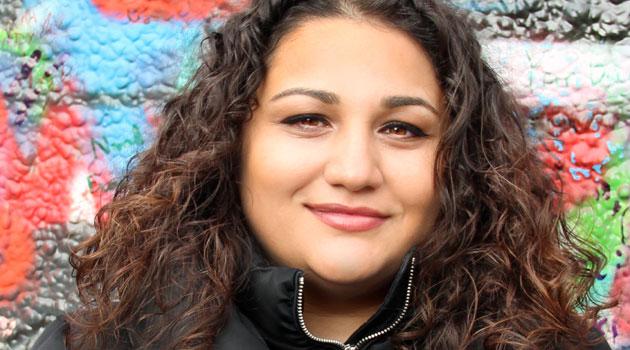Under criticism from lower house, Czech Labor and Social Affairs Minister spends the night in infamous ghetto

The Social Affairs Committee in the Czech lower house has criticized the ministries responsible for failing to fulfill the 15 measures promised by the Government to combat poverty and improve the situation in the country’s ghettos. MPs from parties in the governing coalition and in opposition agreed that no progress has been made toward resolving the situation one year on from the publication of the 15-point list.
The MPs said they are beginning to draft and push for their own proposals. At the same time they called on Czech Labor and Social Affairs Minister Jana Maláčová (Czech Social Democratic Party – ČSSD) to discuss the matter with the rest of the Government.
The cabinet’s program declaration promised to propose a social housing law. It then abandoned the idea of a new legal norm and instead introduced subsidies for the building of apartment units.
Czech Prime Minister Andrej Babiš (Association of Dissatisfied Citizens – ANO) and the Labor Minister spoke of the need to “turn around the trafficking in poverty” taking place with respect to the exploitation of those eligible for welfare to cover their housing costs. The Labor Minister published their list of 15 incentives to change the situation at the beginning of September 2018.
The list included taking advantage of the existence of real estate price maps showing customary rents when deciding on the value of housing benefits, combining the existing two housing benefits into one, limiting the number of persons allowed by law to reside in a certain amount of space, beefing up social work, regulating the leasing of multiple apartment units through trade licensing requirements, adjusting the conditions for permanent residency, providing opportunities for debt relief, and associating parents’ welfare eligibility with their children’s school attendance. At the beginning of this year it could be seen from reports produced for the Government that the ministries were refusing to take one-third of the steps on the list.
According to current reports by the Labor and Social Affairs Ministry for the lower house committee that have been made available to the Czech News Agency, eight of the measures are being fulfilled, two have been completed, and nothing will be done about the rest. “I apologize for being blunt, but for one year now everybody has been pointing the finger at somebody else and passing the buck. The Labor Ministry plays a crucial role, but without the other ministries and stakeholders pulling their weight, this problem will never be resolved,” the Labor Minister said.
Maláčová then added that there are no “fast, short-term, simple solutions” to these problems. According to a Labor Ministry analysis, in 2006 there were about 300 localities – either single apartment buildings, entire streets, or whole neighborhoods – where about 80 000 impoverished residents live all over the country.
Ten years later, there are more than 600 such ghettos, with as many as 115 000 people living in them. MPs with the opposition Civic Democratic Party (ODS) and the Pirates, as well as the governing ANO movement and the Communists, who are tolerating the cabinet, are currently all expressing their disappointment with the Government’s approach.
“Almost none of the 15 measures has succeeded. Instability in the regions is high. Citizens no longer believe politicians are able to do anything about this. We’re responding at 20 minutes after midnight. It’s no joke anymore. We have overslept, and aid is not arriving in the regions. This is a big disappointment to us,” said Czech MP Hana Aulická Jírovcová (Communist Party of Bohemia and Moravia – KSČM), a vice-chair of the Social Affairs Committee in the lower house.
According to the Communist vice-chair, the worst situations are in the Karlovy Vary, Moravian-Silesian and Ústecký Regions. For her part, the Labor Minister has called the situation in some places a time bomb and believes some regions are “on the brink of civil unrest”.
However, the minister has also pointed out that it is not possible to draft legislation that will target just certain locations or population groups. Some lawmakers have already spoken about their proposed amendments to current legislation.
“We are now rolling out our own bills in the lower house. The ministries have demonstrated that they are not acting and that they don’t want to address this,” the Communist vice-chair of the Social Affairs Committee said.
The different parties’ representatives have divergent notions about how to address the situation. While some would choose radical measures and welfare cuts, others are opposed to rapid solutions and more regulation and are inclined to beef up social work and other such steps.
Maláčová accepted an invitation from Czech MP Eva Fialová (ANO), who has been living since June in the infamous Předlice quarter of Ústí nad Labem, and spent the night there on Wednesday, 18 September. “The night was calm. All that surprised me about last night’s grilling with the local long-term residents was how realistic they are. They know that if newcomers don’t work, don’t send their children to school and don’t maintain order in their surroundings, nothing will change,” she told news server iDNES.cz during breakfast at Fialová’s apartment in the neighborhood.
“In the beginning I told my colleagues that whoever wants to come visit me here is welcome to do so. Madame Minister took advantage of the opportunity and I’m awfully glad she did. She saw how things are here in reality. There actually are many problems here, but some of them can only be discovered after spending several months here,” Fialová told iDNES.cz.
